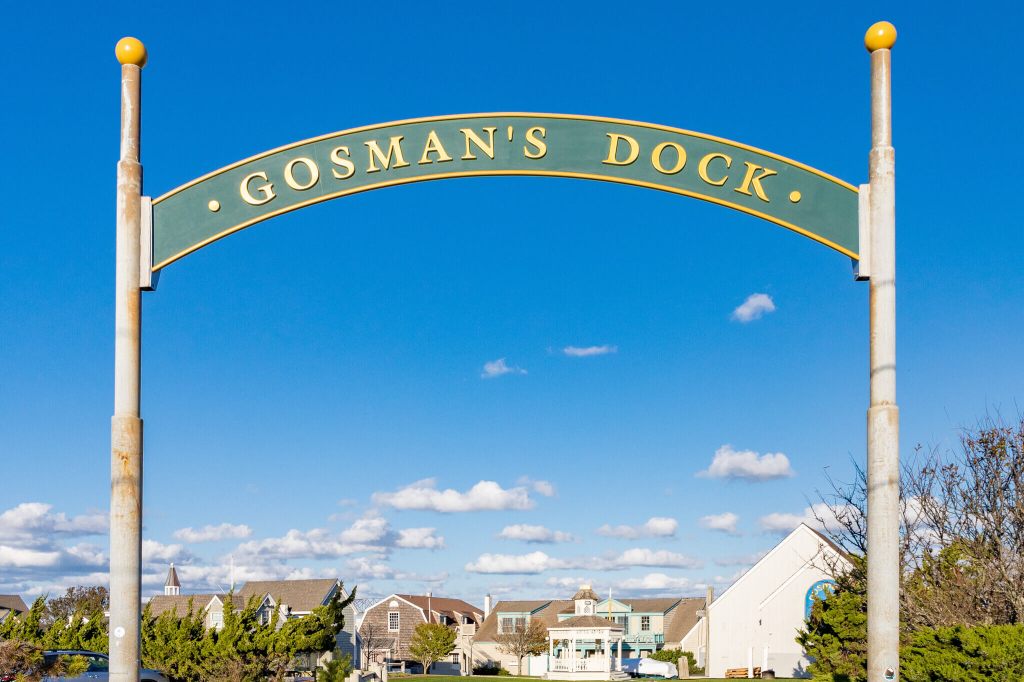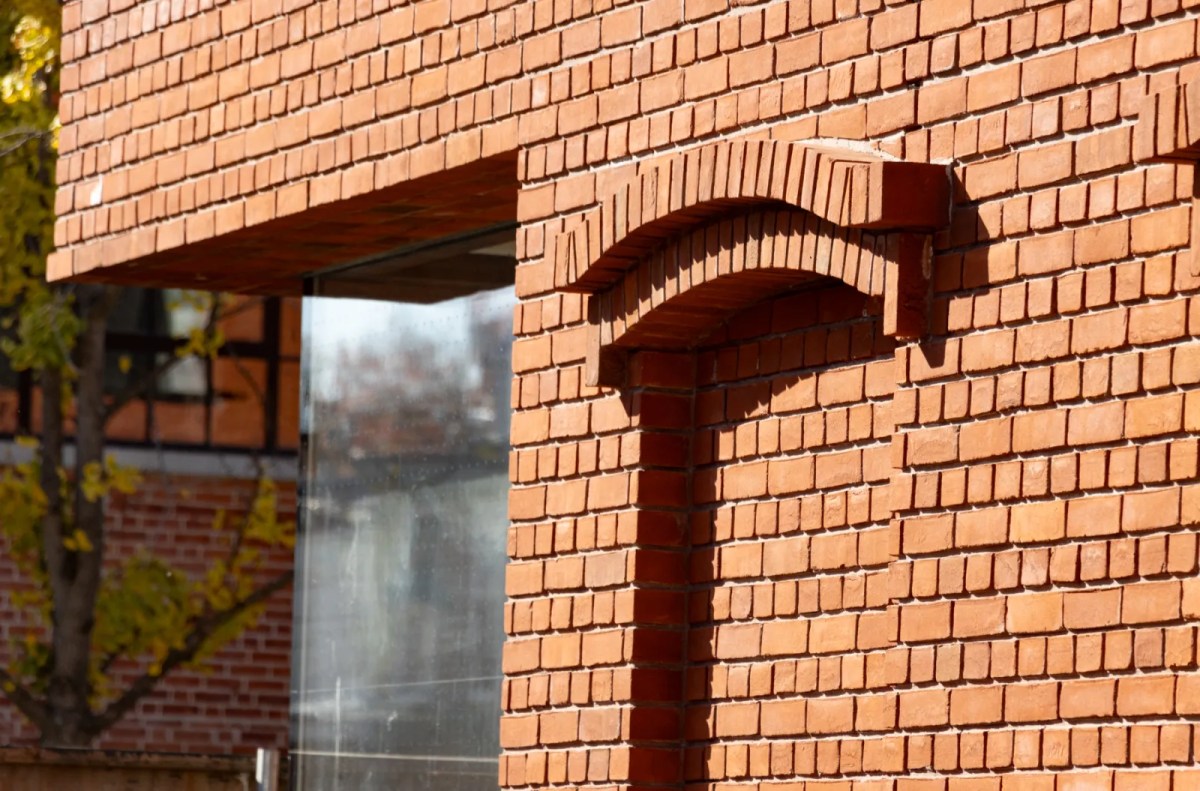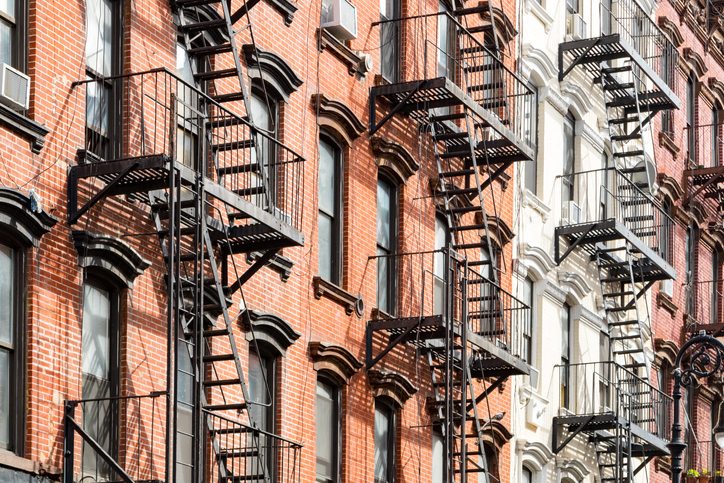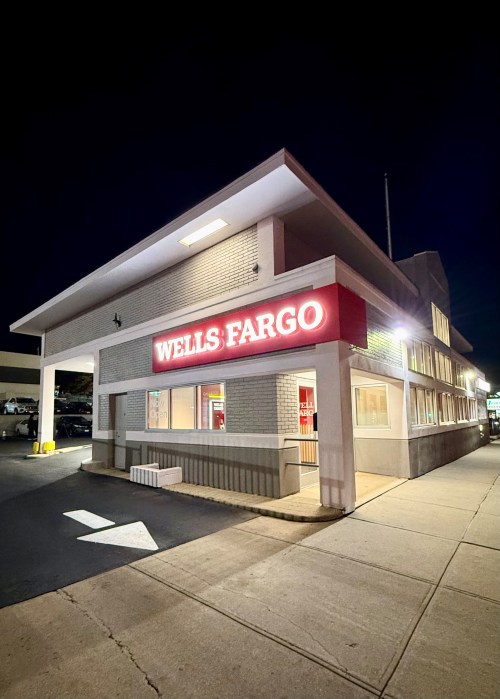A tenants rights group said Monday that it has uncovered more than 10,000 instances where the city approved construction permits that falsely claimed buildings contained no rent-stabilized units.
Standing outside Kushner Companies’ office at 666 Fifth Ave. in midtown, Housing Rights Initiative members said the city’s lax approach to penalizing and collecting fines from that landlord inspired the group to examine the government’s broader track record.
HRI said it reviewed major renovation permits filed from the past two and a half years at buildings identified as rent-stabilized and found that about half of the more than 20,000 filings contained false information.
Landlords may be reluctant to indicate their buildings have rent-regulated apartments because such structures are subject to additional scrutiny, according to HRI executive director Aaron Carr.
“This measure exists to protect rent-stabilized tenants from construction harassment, and construction harassment is a deliberate technique to systematically harass tenants out of their apartments,” Carr said. “Landlords have been routinely lying on these forms with impunity.”
The city Department of Buildings said in 2017 it reached a data- sharing agreement with New York State Homes and Community Renewal, the state agency overseeing rent stabilization, which helps it determine whether forms have been filled out accurately.
During the last two fiscal years, the city Department of Buildings said it issued more than 800 violations for false filings.
“DOB thoroughly reviews and audits permit applications to protect residents, whether or not the landlord checks the rent-regulation box on our forms,” a department spokesman, Joseph Soldevere, said in a statement. “While we haven’t had the opportunity to determine if this report is accurate, at most the group’s findings amount to 3 percent of construction permits issued during that time.”
He said that in “the overwhelming majority” of similar cases previously flagged by HRI, the landlords had submitted tenant protection plans, even when the permit paperwork noted the sites did not contain rent-regulated apartments.
But HRI and City Councilman Ritchie Torres previously faulted the city for failing to collect some $1.5 billion in sanitation and building violation fines issued, some of which were issued years ago.
Earlier this month, they questioned whether the city was doing enough to crack down on Kushner Companies when it issued the firm $210,000 in violations for filing permits with false information. At the time, the landlord had $350,000 in such outstanding fees, the advocates said.
Kushner Companies, which is run by the family of President Donald Trump’s son-in-law, Jared Kushner, declined to comment.
Torres said he urged the Department of Investigation to examine why so many fines go uncollected. DOI declined to comment on whether it planned to open an investigation.
Torres also said Monday that he would introduce legislation that compels the city to more aggressively supervise construction in rent-stabilized buildings.
Under the measure, the city Department of Buildings would be obligated to audit a landlord’s entire portfolio if a false form was filed at one of its buildings.
The bill would also compel the Department of Buildings to notify the City Council, city Department of Investigation, New York Homes and Community Renewal, state attorney general and local district attorney whenever it finds evidence of a false filing.
“It’s up to the criminal law enforcement agencies to determine whether to act on these cases,” Torres said, noting the crime is a misdemeanor under local law and a felony under state law. “I’m troubled by DOB’s nonchalant attitude toward falsifications … Falsifying a legal instrument is a serious matter — you might remember the Housing Authority ran into trouble because it falsified documents related to lead safety.”
Mayor Bill de Blasio’s office referred questions to the city Department of Buildings. Its spokesman, Soldevere, said the department had not had a chance to review the proposed measure, but has had a long-standing practice of reviewing a landlord’s other properties — or contractor’s other jobs — if serious misconduct is uncovered at one of their construction sites.
He also noted that the Department of Buildings is hiring more than 70 inspectors and support staff solely dedicated to inspecting work in residential buildings, enforcing tenant protection plans and probing cases of construction-based tenant harassment.
“As part of this effort, DOB is establishing a Real Time Enforcement Unit, which will respond to work-without-a-permit complaints in residential buildings within 12 hours and perform inspections of permitted construction within 20 days of the start of work,” Soldevere said in a statement.
New York Homes and Community Renewal did not immediately respond to a request for comment.
































